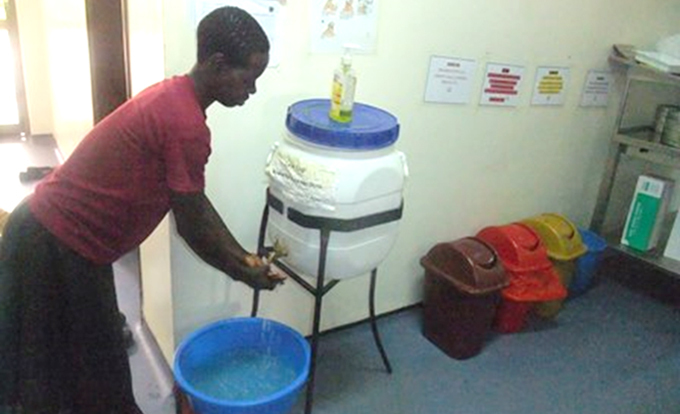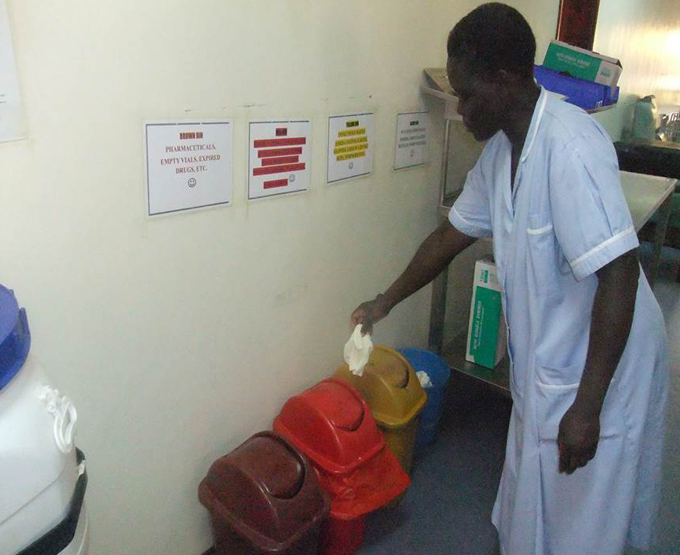Handwashing saving newborns at Lira Hospital
Jul 10, 2017
Out of every 1000 children born in Uganda, 27 die during the first 28 days of life

In just six months, Lira Regional Referral Hospital had reduced neonatal sepsis from a 5.1% high to 0.6% through simple practices such as handwashing, proper disposal of waste and use of gloves.
In a baseline study by the hospital team, it was found that ‘65% of the health workers didn't wash hands before handling a baby, 90% didn't use sterile cotton during patient examination, 80% didn't wash hands after handling a baby and 35% deliveries carried out using unsterilized equipment.
While making a presentation of their findings at the recent dissemination workshop held at the Imperial Royale Hotel in Kampala, Sister Petua Olobo Kiboka, explained that after an assessment, inadequate infection control measures and practices were found to be the root cause of the sometimes fatal cases of neonatal sepsis.
Neonatal sepsis according to Kiboko is when a baby who had been active and sucking well suddenly becomes lethargic, febrile and unable to suckle within 28 days of life.
In the months of January-June 2016, 162 of the 3170 live births at the facility developed neonatal sepsis. Of the 162, a total of 47 babies did not survive (29% mortality rate).
According to Kiboko, at least 100 health workers were oriented on the project and trained on infection control measures.
"We came up with talking charts to act as reminders of what one is supposed. Babies beds had such messages as ‘Please wash hands before touching me" she said.
 A mother washing hands at the hospital.
A mother washing hands at the hospital.The hospital has since revitalized their infection control committee that had been dysfunctional for some time.
Handwashing practices have since skyrocketed; 90% before handling a baby, 85% after handling a baby, 75% in between examination of babies, 100% after carrying out a procedure and 95% after removing gloves.
Dr James Elima, the hospital's director explained that most of the challenges faced in health service delivery require simple interventions. These are however stifled by a negative health worker attitude.
"Health workers just follow a routine. They want to come work and leave without giving thought to their jobs. That's why even simple handwashing is a challenge," he said.
However, he argued that continuous engagement and ensuring health worker participation in decision making is key when developing interventions.
"When people's views are thought and considered, it's very easy to implement interventions. They feel appreciated and thus a part of the solution," he said.
In order to reduce neonatal sepsis, the team recommended building capacity of health workers in infection control measures, avail tools, supplies and hold regular team meetings to review performance.
Lira Regional Referral hospital is one of the 82 health managers from 46 district local governments that participated in a work based district capacity building program to improve service delivery.
The programme that was implemented between August 2015-June 2017 with support from Centre for Disease Control and the Global Fund had health leaders identify challenges in health service delivery and develop interventions.

According to Dr Joseph KB Matovu, the Program Support Advisor from Makerere University School of Public Health, different teams used different approaches to improve the areas that they tackled.
The ultimate goal according to Matovu was to improve health service delivery at district and regional levels through improving the capacity of leaders and managers of health services to effectively and efficiently plan as well as address the inherent challenges.
Out of every 1000 children born in Uganda, 27 die during the first 28 days of life. The causes of death as highlighted in a 2016 study titled ‘The neonatal mortality and its determinants in rural communities of Eastern Uganda' by Ronald M Kananura and others include sepsis/pneumonia, tetanus, diarrhoea, prematurity and birth asphyxia.
